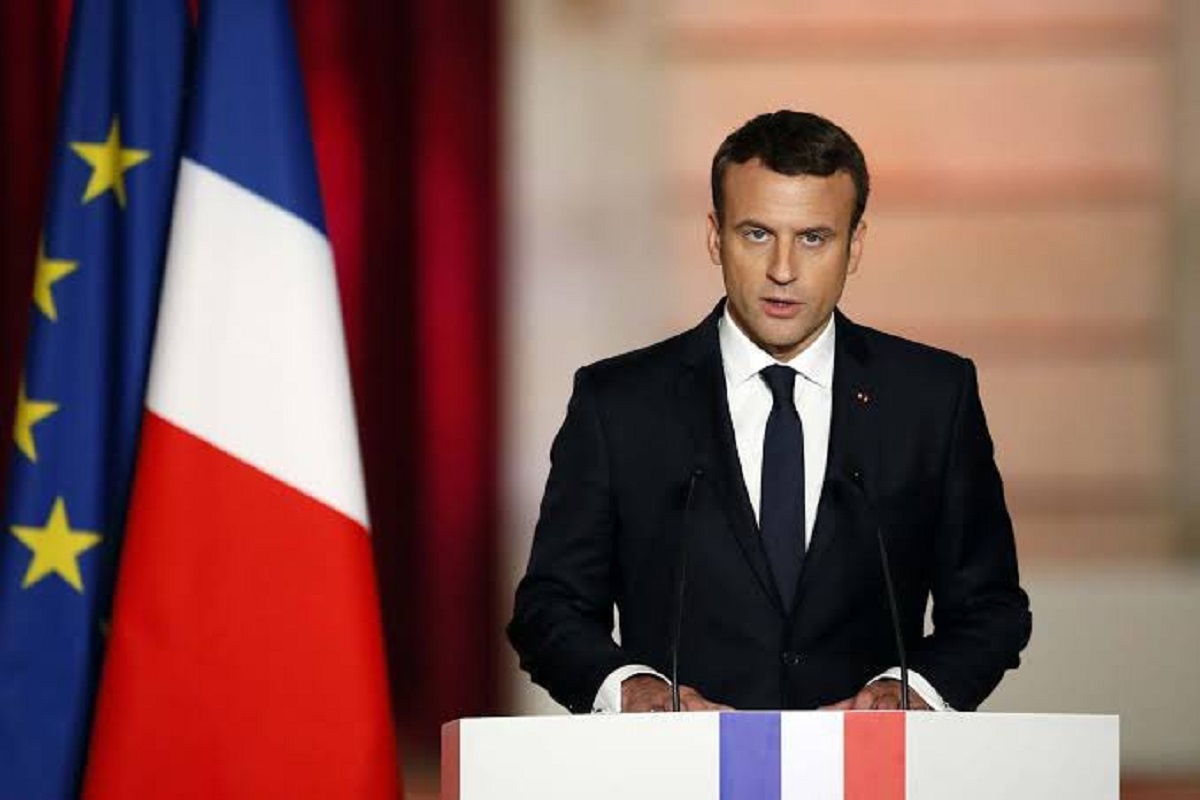Egypt, Jordan, France urge immediate ceasefire in Gaza
Egypt, Jordan, and France have urged an immediate ceasefire in the Gaza Strip, which has been under Israeli siege and bombardment over the past six months.
Mr Macron expressed optimism that a deal to avoid war is possible while accepting that it was legitimate for Russia to raise its security concerns, the first sign that the West may be ready to blink.

French President Emmanuel Macron (Twitter photo)
International efforts to defuse the standoff over Ukraine intensified on Monday with President Emmanuel Macron of France holding talks with his Russian counterpart in Moscow and the German Chancellor, Olaf Scholz, in Washington to coordinate policies as fears of a Russian invasion mounted.
Mr Macron expressed optimism that a deal to avoid war is possible while accepting that it was legitimate for Russia to raise its security concerns, the first sign that the West may be ready to blink. Meanwhile, President Joe Biden said that America and Germany are “in lockstep” on confronting Russia over Ukraine, after a meeting with Mr Schulz. Indeed, Europe is going through its most dangerous moment since the Cold War amidst the increasingly resonant beating of war drums.
The statement was advanced as President Macron held talks in Moscow with President Vladimir Putin in the highest-profile intervention yet by a Western leader to ease the crisis. Russia has amassed tens of thousands of troops near the Ukraine border, with Western leaders raising alarms of a potential attack. Russia denies it is preparing for an invasion. Mr Biden said after a meeting with Chancellor Scholz, “We’re working in lockstep to further deter Russian aggression in Europe” as well as in meeting “challenges posed by China.”
Advertisement
Mr. Scholz, on his first trip to the White House since taking over from longtime German leader Angela Merkel, said their countries were the “closest allies and working intensely together.” In parallel, the European Union foreign policy chief Josep Borrell stressed a diplomatic solution with Russia over Ukraine remained “possible” at a joint news conference in Washington with US Secretary of State Antony Blinken. “We are living, to my understanding, the most dangerous moment for security in Europe after the end of the Cold War,” Mr. Borrell told reporters.
America and the European Union have pledged to work to ensure gas supplies can respond to disruptions in pipeline gas flows to the continent by Russia, its biggest supplier. “We’re working together right now to protect Europe’s energy supply against supply shocks, including those that could result from further Russian aggression against Ukraine,” Mr Blinken said. Europe’s dependence on Russian gas has come under scrutiny in recent months because of lower than expected supplies and rising tensions on the Ukrainian border.
Ukraine’s Foreign Minister Dmytro Kuleba has warned Moscow against trying to split Kiev from its Western allies. “No one, no matter how hard anyone tries in Russia, will be able to drive a wedge between Ukraine and its partners,” Mr Kuleba said at a press conference with his German counterpart Annalena Baerbock in Kiev.
“We have … jointly prepared a series of tough measures against Russia for this eventuality; these sanctions are unprecedented and have been coordinated and prepared with all partners,” Ms Baerbock said. In the ultimate analysis, though, the way to peace may lie in Mr Macron’s admission about Russia’s security concerns.
Advertisement